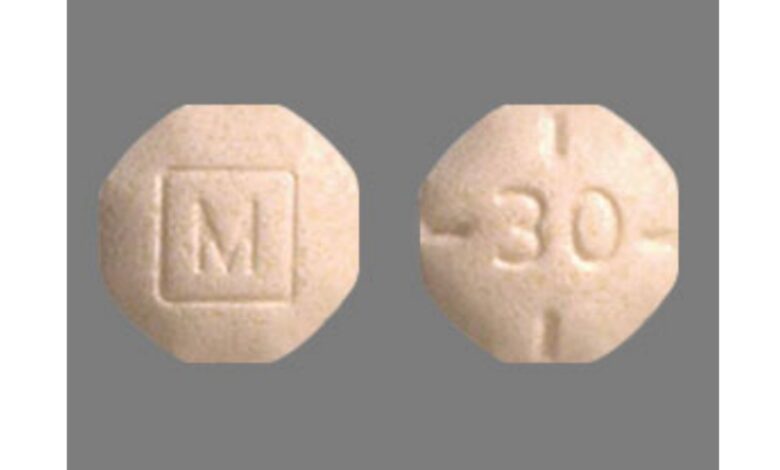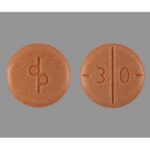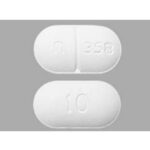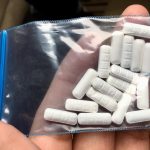What Type Of Pill Is The Eight-Sided White M 30

The eight-sided white pill with the imprint M 30 has been identified as Amphetamine and Dextroamphetamine 30mg. It is supplied by Mallinckrodt Pharmaceuticals. M 30 white pill is a prescription medication that belongs to a class of medications called stimulants. It’s most commonly used to treat attention-deficit hyperactivity disorder (ADHD). It’s also used to treat narcolepsy.
M 30 white pill is a type of Adderall and is considered a first-choice treatment option for ADHD. Studies show that it improves attention and focus, and reduces impulsive behaviors. Between 75 percent and 80 percent of children with ADHD will see improved symptoms with the use of stimulants such as Adderall. The M30 white pill is also effective for increasing daytime wakefulness in people with narcolepsy, although there is little related research available.
Why is this medication prescribed?
The combination of dextroamphetamine and amphetamine (Adderall, Adderall XR, Mydayis) is used as part of a treatment program to control symptoms of attention deficit hyperactivity disorder (ADHD; more difficulty focusing, controlling actions, and remaining still or quiet than other people who are the same age). Adderall is used to treat ADHD in adults and children 3 years of age and older. Adderall XR is used to treat ADHD in adults and children 6 years of age and older. Mydayis is used to treat ADHD in adults and children 13 years of age and older. Dextroamphetamine and amphetamine (Adderall) is also used to treat narcolepsy (a sleep disorder that causes excessive daytime sleepiness and sudden attacks of sleep) in adults and children 12 years of age and older. The combination of dextroamphetamine and amphetamine is in a class of medications called central nervous system stimulants. It works by changing the amounts of certain natural substances in the brain.
How to use M30 white pill?
Read the Medication Guide and if available, the Patient Information Leaflet provided by your pharmacist before you start taking the M30 white pill and each time you get a refill. If you have any questions, ask your doctor or pharmacist.
Take this medication by mouth with or without food as directed by your doctor, usually once daily in the morning. You may take this medication with or without food, but it is important to choose one way and take this medication the same way with every dose. Taking this medication after noon may cause trouble sleeping (insomnia).
The dosage is based on your medical condition and response to treatment. Your doctor may adjust your dose to find the dose that is best for you. Follow your doctor’s instructions carefully. Use this medication regularly to get the most benefit from it. To help you remember, take it at the same time each day.
During treatment, your doctor may occasionally recommend stopping the medication for a short time to see whether there are any changes in your behavior and whether the medication is still needed. If you suddenly stop using this medication, you may have withdrawal symptoms (such as severe tiredness, sleep problems, mental/mood changes such as depression). To help prevent withdrawal, your doctor may lower your dose slowly. Withdrawal is more likely if you have used this medication for a long time or in high doses. Tell your doctor or pharmacist right away if you have withdrawal. When this medication is used for a long time, it may not work as well. Talk with your doctor if this medication stops working well.
Though it helps many people, this medication may sometimes cause addiction. This risk may be higher if you have a substance use disorder (such as overuse of or addiction to drugs/alcohol). Do not increase your dose, take it more often, or use it for a longer time than prescribed. Properly stop the medication when so directed. Tell your doctor if your condition does not improve or if it worsens.
What side effects can this medication cause?
M 30 white pill may cause side effects. Tell your doctor if any of these symptoms are severe or do not go away:
- nervousness
- headache
- changes in sex drive or ability
- painful menstrual cramps
- dry mouth
- constipation
- diarrhea
- nausea
- weight loss
Some side effects can be serious. If you experience any of the following symptoms call your doctor immediately or get emergency medical treatment:
- slow or difficult speech
- dizziness
- weakness or numbness of an arm or leg
- seizures
- motor or verbal tics
- teeth grinding
- depression
- believing things that are not true
- feeling unusually suspicious of others
- hallucinating (seeing things or hearing voices that do not exist)
- agitation, hallucinations (seeing things or hearing voices that do not exist), fever, sweating, confusion, fast heartbeat, shivering, severe muscle stiffness or twitching, loss of coordination, nausea, vomiting, or diarrhea
- mania (frenzied or abnormally excited mood)
- changes in vision or blurred vision
- paleness or blue color of fingers or toes
- pain, numbness, burning, or tingling in the hands or feet
- unexplained wounds appearing on fingers or toes
- blistering or peeling skin
- rash
- hives
- itching
- swelling of the eyes, face, tongue, or throat
- difficulty breathing or swallowing
- hoarseness
M 30 white pill Safety Information
Dextroamphetamine and amphetamine may cause sudden death in children and teenagers, especially children or teenagers with heart defects or serious heart problems. This medication also may cause sudden death, heart attack or stroke in adults, especially adults with heart defects or serious heart problems. Call your doctor right away if you or your child has any signs of heart problems while taking this medication including: chest pain, shortness of breath, or fainting. Talk to your doctor about the risks of taking this medication.
Dextroamphetamine and amphetamine may slow children’s growth or weight gain. Your child’s doctor will watch his or her growth carefully. Talk to your child’s doctor if you have concerns about your child’s growth or weight gain while he or she is taking this medication. Talk to your child’s doctor about the risks of giving dextroamphetamine and amphetamine to your child.
If you experience a serious side effect, you or your doctor may send a report to the Food and Drug Administration’s (FDA) MedWatch Adverse Event Reporting program online (http://www.fda.gov/Safety/MedWatch) or by phone (1-800-332-1088).
The combination of dextroamphetamine and amphetamine can be habit-forming. Do not take a larger dose, take it more often, or take it for a longer time than prescribed by your doctor. If you take too much dextroamphetamine and amphetamine, you may continue to feel a need to take large amounts of the medication, and you may experience unusual changes in your behavior. You or your caregiver should tell your doctor immediately, if you experience any of the following symptoms: fast, pounding, or irregular heartbeat; sweating; dilated pupils; abnormally excited mood; restlessness; irritability; difficulty falling sleeping or staying asleep; hostility; aggression; anxiety; loss of appetite; loss of coordination; uncontrollable movement of a part of the body; flushed skin; vomiting; stomach pain; or thinking about harming or killing oneself or others or planning or trying to do so. Overusing dextroamphetamine and amphetamine may also cause serious heart problems or sudden death.
Tell your doctor if you or anyone in your family drinks or has ever drunk large amounts of alcohol, uses or has ever used street drugs, or has overused prescription medications. Your doctor will probably not prescribe dextroamphetamine and amphetamine for you.
Do not stop taking dextroamphetamine and amphetamine without talking to your doctor, especially if you have overused the medication. Your doctor will probably decrease your dose gradually and monitor you carefully during this time. You may develop severe depression and extreme tiredness if you suddenly stop taking dextroamphetamine and amphetamine after overusing it.
Do not sell, give away, or let anyone else take your medication. Selling or giving away dextroamphetamine and amphetamine may harm others and is against the law. Store dextroamphetamine and amphetamine in a safe place so that no one else can take it accidentally or on purpose. Keep track of how many tablets or capsules are left so you will know if any are missing.
Your doctor or pharmacist will give you the manufacturer’s patient information sheet (Medication Guide) when you begin treatment with dextroamphetamine and amphetamine and each time you get more medication. Read the information carefully and ask your doctor or pharmacist if you have any questions. You can also visit the Food and Drug Administration (FDA) website (http://www.fda.gov/Drugs/DrugSafety/ucm085729.htm) or the manufacturer’s website to obtain the Medication Guide.





